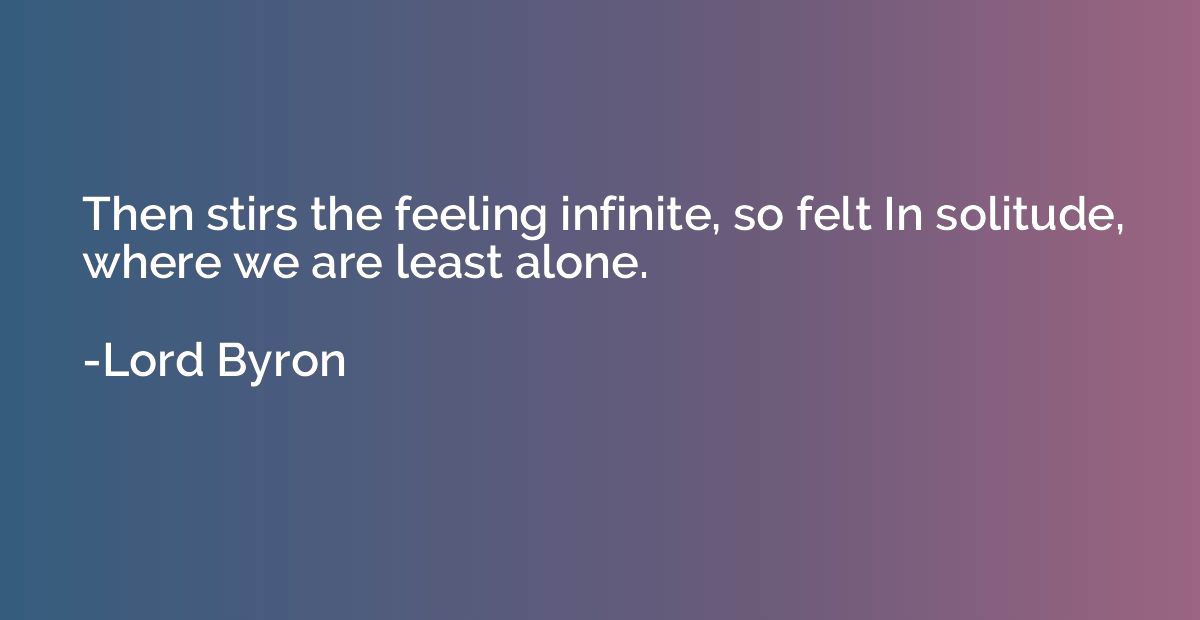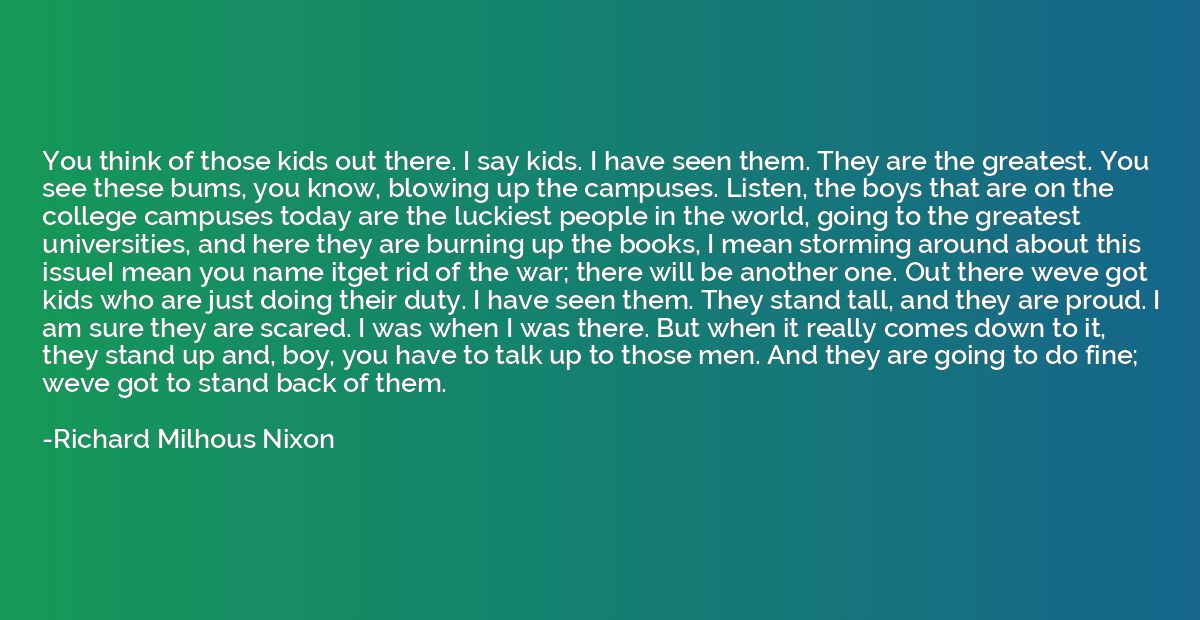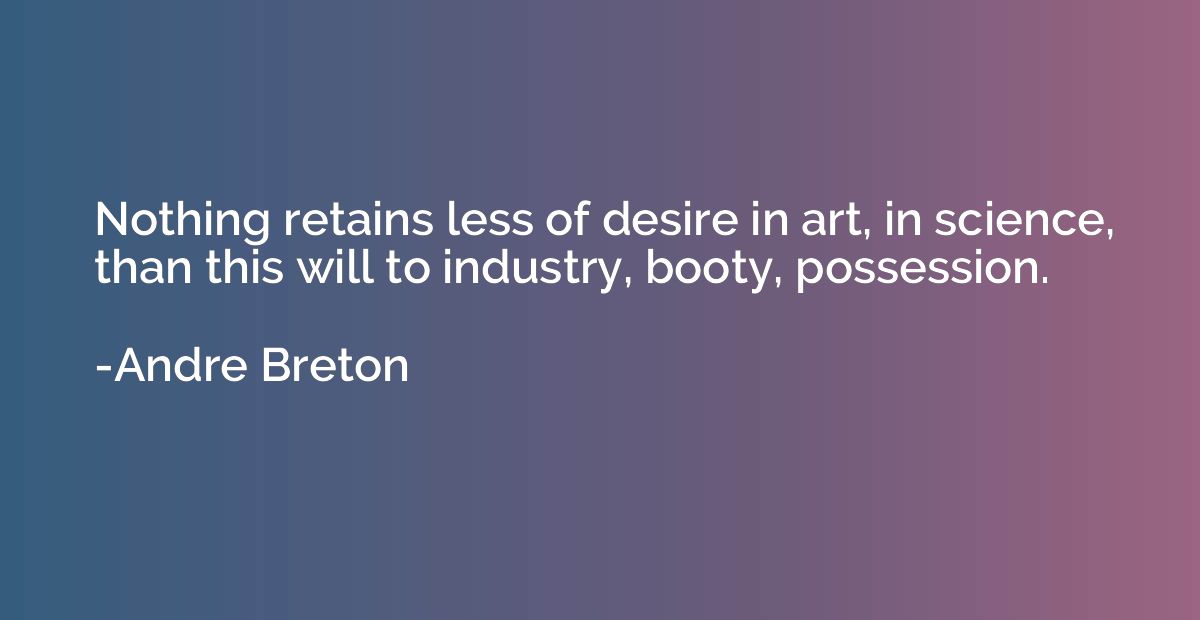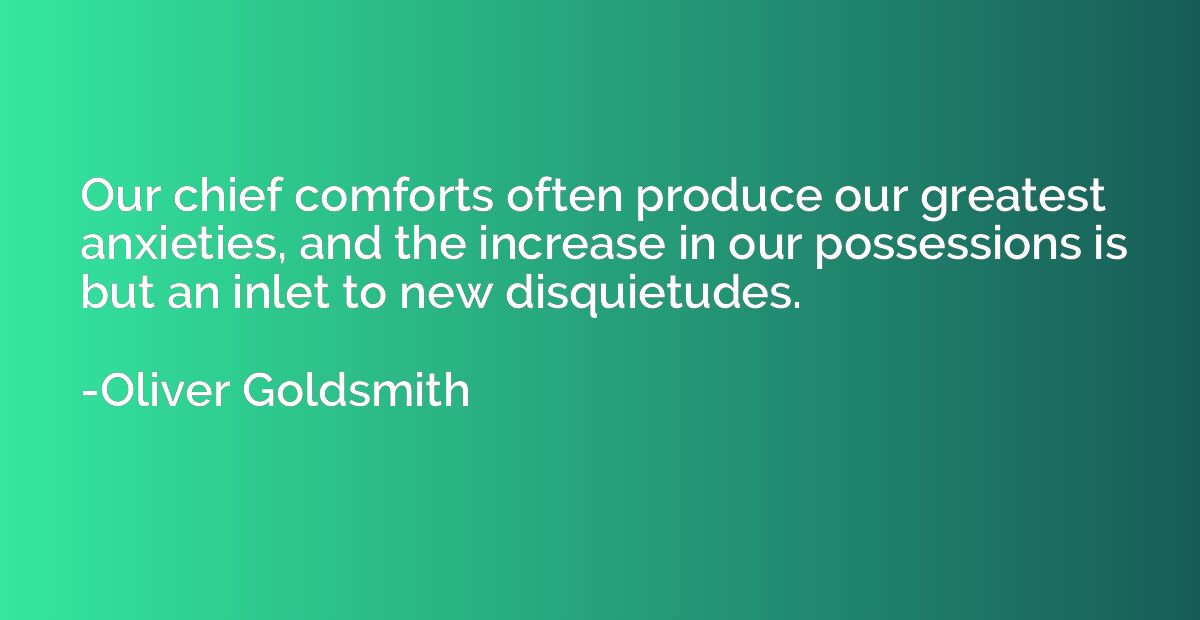Summary
This quote, from Lord Byron's poem "Childe Harold's Pilgrimage," suggests that in moments of solitude, our emotions are intensely awakened, bringing us a sense of infi$\unicode{FB01}$nite feeling. It highlights the paradoxical notion that despite being physically alone, solitude provides a profound connection to our inner selves and helps us discover our deepest emotions. In these moments, we realize that true loneliness isn't found in physical isolation, but rather in the absence of internal reflection and self-awareness.
Topics
Alone
By Lord Byron















